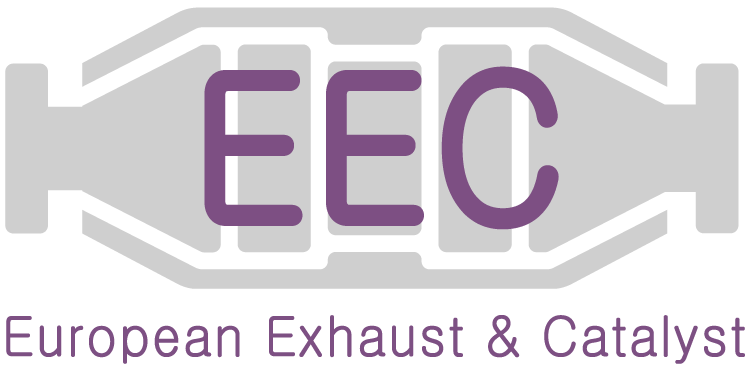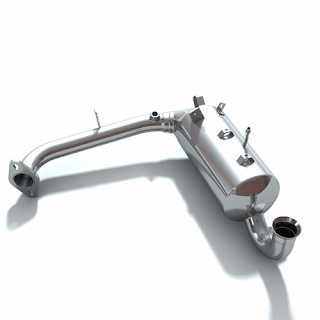Since the ECE103 legislation came into effect in 2009 making it illegal to fit a non-type approved catalytic converter to vehicles registered after March 2001, the industry has struggled to understand the law on defining a ‘Type Approved DPF’.
The law was quite unclear, but when a Diesel Particulate Filter is combined with a catalytic converter, the DPF also needs to be type approved because it is seen as just one product.
The law states: “To keep pace with European requirements, vehicles approved to EU Regulation 715/2007 (Euro 5 and Euro 6) need to have a Type Approved Diesel Particulate Filter.”
When the ECE103 legislation is amended, it’s likely the same approval number will cover both the DPF and the catalyst, despite using a different test procedure. Until this point, ECE103 only covers the testing of the catalyst.
Future Approval Procedures
Nothing new has been proposed for the new test procedure that could apply to the future approval of DPF’s, and therefore EEC believes that the particulate mass levels and regeneration characteristics are the criteria likely to be measured.
This makes these tests quite complicated yet thorough, ensuring that the filter element performs strictly to the OE standard of regeneration.
EEC already selects the same volume catalyst and filter for each application, as the OE part, and the potential legislation will mean all other manufacturers will have to do the same.
Sic and Cordierite
Many different factors affect the regeneration of a DPF, including its configuration, temperature resistance, thermal shock resistance, expansion and conductivity.
In preparation for the proposed forthcoming legislation, EEC has researched and developed a Silicon Carbide (SIC) DPF system based primarily on OE technology, because this is the standard all main European OEM producers use.
This complements our existing cordierite-based offering to provide a product that reduce corrosion, increase resistance to sulphuric acid corrosion, and allows for better mechanical strength at higher temperatures.
Our SIC based systems have been thoroughly tested in a variety of conditions using the criteria of particulate mass levels and soot regeneration characteristics, ensuring we fit the Euro V standards.
Meeting the Legislation
Having researched both types DPF systems fully, EEC can offer the correct application for each vehicle, and by using our expertise, knowledge and experience, we’re confident our products will comply with the future legislation.
We’re pleased to offer technical advice for our industry, and to support our customers wherever possible. Our technical team is available via telephone and email, and we write tips and articles on our blog: http://eec-technical.blogspot.com, where readers can sign up to receive posts via email and social media channels.
EEC
EEC has been manufacturing quality automotive products such as catalytic converters, DPFs, lambda sensors, exhausts, front pipes and brake pads since 1997. Based in two locations in Hampshire UK, we also have a manufacturing base in Hilton, along with a number of other sister companies.
Independent dealers, motor factors, wholesalers and buying groups across Europe benefit from a two-year guarantee on most products, a standard next-day delivery in the UK and significant business support.
If you would like to like to discuss how the forthcoming legislative changes could affect you, please get in touch with James Slade – jslade@eurocats.co.uk or call 023 9224 5300.
Find out more information at www.eurocats.co.uk.


